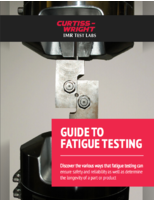Concrete Surface Resistivity Meter performs non-destructive test.
Press Release Summary:
Able to yield results within minutes, Resipod 4-point Wenner probe measures electrical resistivity of concrete or rock. Portable field unit meets AASHTO provisional standard TP95-11 and is available with 1.5 or 2 in. probe. In addition to indicating current flow, poor contact status, and variations in water/cement ratios, commercial product can identify areas susceptible to chloride penetration. USB connection and dedicated Resipod Link PC software are standard.
Original Press Release:
The World's Most Accurate Concrete Surface Resistivity Meter
Proceq's new Resipod is a fully integrated 4-point Wenner probe, designed to measure the electrical resistivity of concrete in a completely non-destructive test. The cost/benefit ratio of the Resipod is outstanding as compared with other currently available technology, with huge savings potential in man-hours to produce acceptable mix designs. This portable field unit can yield accurate results in minutes for what previously took days, resulting in greatly reduced concrete testing costs for DOTs, concrete producers and contractors. This instrument is the only known commercial unit of its kind to meet AASHTO provisional standard TP95-11.
Concrete surface resistivity testing is non-destructive, simple to perform and the most versatile method for on-site evaluation of concrete. The Surface Resistivity (SR) test is a quick, proven method for estimating concrete permeability, and can replace the laborious rapid chloride permeability test. In other applications, measurements can show likelihood of corrosion, estimation of corrosion rate, curing efficiency, and predict structure durability.
Features and Benefits:
The Measurement Principle
Operating on the principle of the Wenner probe, the Resipod is designed to measure the electrical resistivity of concrete or rock. A current is applied to the two outer probes, with the difference measured by the two inner probes, with the calculated resistivity dependent upon the probe spacing.
Warranty and Service
The Resipod comes with a 24-month warranty on all electronic parts, with an option to purchase extended warranty coverage. The instrument is supplied with a rugged carrying case, test block, and product documentation. An extension cable is available as an accessory to allow variable probe spacing, or user probes to be attached to suit specific applications. Proceq provides complete service and technical support through its global network and support facilities in the Americas, Europe, Asia, Middle East and Russia.
For more information, specifications, operating instructions and photos of the Resipod, visit Proceq's web site at www.proceq.com




